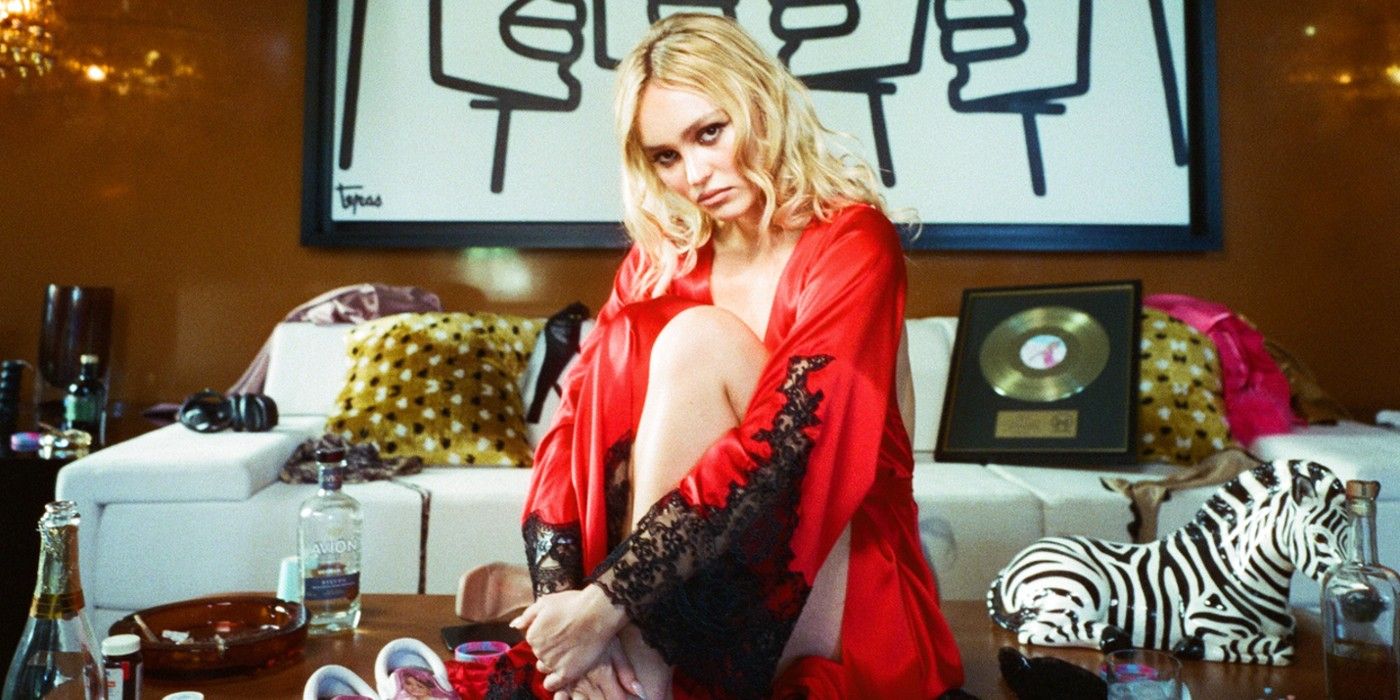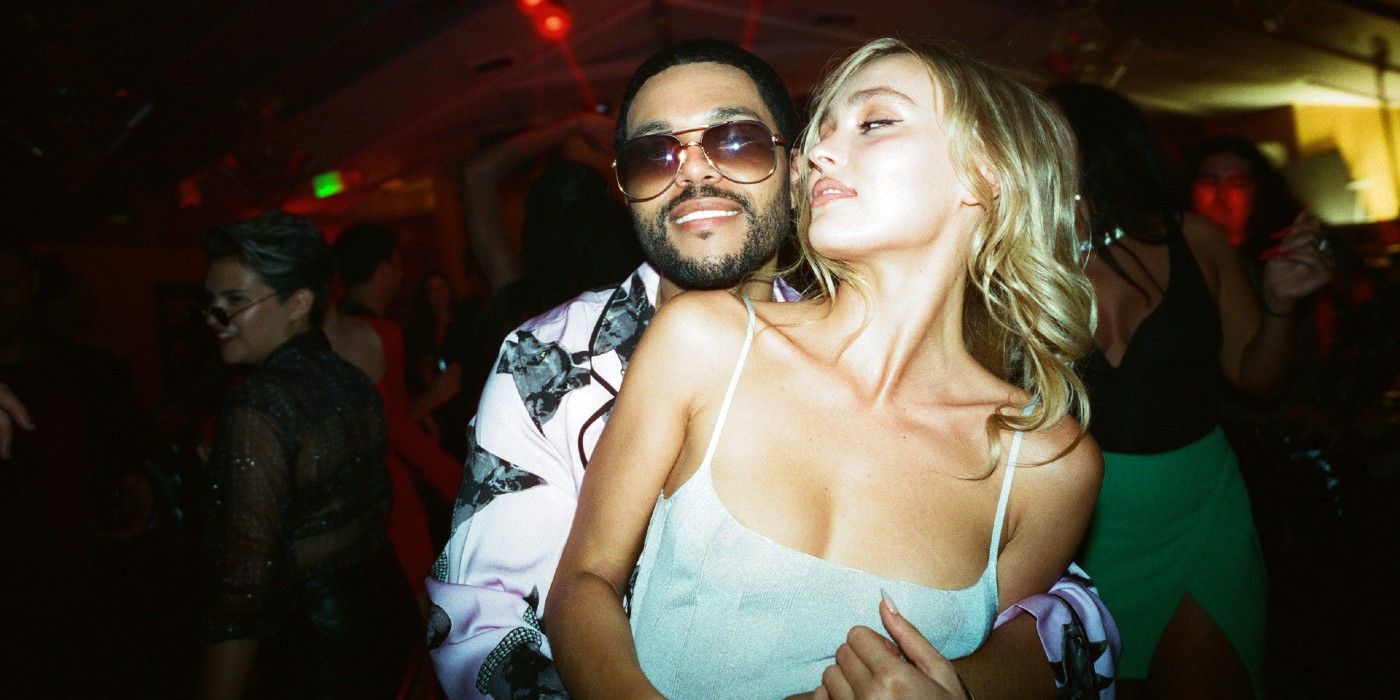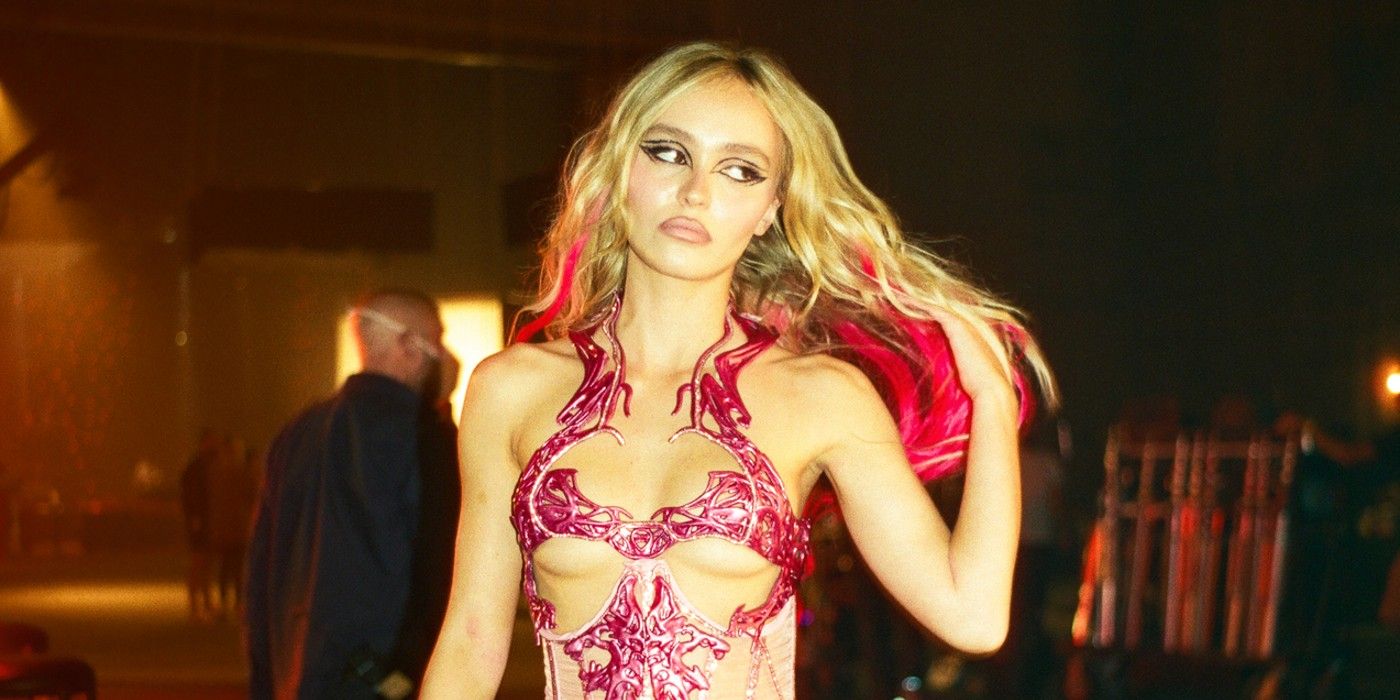It's difficult to tell what Sam Levinson wants. Is a show like Euphoria an earnest attempt at dissecting the life of the modern teen? Is Assassination Nation a worthwhile examination of cancel culture and social media? Is his most recent project, HBO's The Idol, co-produced with A24 and shepherded by pop superstar the Weeknd, a genuine look at the plight of the modern popstar? The answer is complicated. The Idol, which premiered its first two episodes at Cannes, received pans from critics amidst a firestorm of behind-the-scenes controversy that dominated the pre-release conversation. It's certainly not as bad as some have made it out to be, but it's by no means the masterpiece that the Weeknd and Levinson have touted in retaliation to the controversy surrounding it. The Idol, for all its flashy marketing and headline-grabbing controversy, is actually just boring — there's an intriguing story lying underneath its facade, but it's buried by vanity and superficiality.
The Idol begins with a close-up of Lily-Rose Depp as Jocelyn as she is shooting the cover of her upcoming album. The camera zooms out to reveal Jocelyn surrounded by lights, makeup artists, intimacy coordinators, and various employees. Quietly, her team debates whether her recent struggles were the result of a psychotic breakdown (they probably were) and whether they should tell her about the leaked photo that shows Jocelyn with semen all over her face (they should). The impending release of her comeback single has everyone on edge, but Jocelyn is unsure of the song until she meets Tedros (Abel 'the Weeknd' Tesfaye, in his acting debut).
The first half of The Idol episode 1 tracks Jocelyn and her team as they deal with the crisis surrounding the leaked photo. Jocelyn's team is perhaps The Idol's greatest strength: Jane Adams, Hank Azaria, Rachel Sennott, Troye Sivan, Eli Roth, Dan Levy, and Da'Vine Joy Randolph are equally hysterical and terrifying as they hold Jocelyn's life in the palm of their greedy hands. Sennott and Adams, in particular, get the chance to shine in the series premiere, Sennott as Jocelyn's best friend-turned-assistant Leia and Adams as Nikki, a zany and over-exhausted record label exec.
When The Idol leaves the team behind to follow Jocelyn's exploits is when boredom begins to set in. Coincidentally, this is when Tedros enters the picture. It's hard not to discuss The Idol without touching on the highly-publicized behind-the-scenes drama that has plagued the show, including the ousting of original director Amy Seimetz. This was reportedly due to the Weeknd's frustration with her focus on the "female perspective" and the sidelining of his character, presumably in favor of Jocelyn. Seimetz was allegedly pushed out after filming several episodes, with Levinson brought in to change the story and take over directing duties.
The first half of The Idol episode 1 has echoes of Seimetz's work, namely in its concerns with Jocelyn's autonomy in an industry that is desperate to strip it from her. It's a bitterly riotous riff on the industry with solid performances from its cast, including Depp, whose portrayal of Jocelyn is both melancholic and laser-focused. The second half is all Levinson and the Weeknd, from a staircase hookup between Jocelyn and Tedros to the former choking herself while she masturbates after meeting the enigmatic club owner. As the camera crawls over Depp's body, making sure to linger on a slip dress that leaves little to the imagination, it seems to be bucking against the thematic inquires laid forth by the first half of the episode. The Idol is clearly confused about what it wants to be.
It doesn't help that the second half of the episode is just plain boring, save for a few technical flourishes that save it from being a total snooze. The chemistry between Depp and the Weeknd feels forced, even as an electric score that evokes the underlying horror slices the tension. The Idol certainly looks beautiful, too, and there's one particular shot where Tedros appears vampiric as he walks down Jocelyn's driveway. The Idol doesn't explore this horror fully and, when it does, it's unclear to what end it will be (if the message is that Hollywood is a nightmare, well, all hope is lost). As Jocelyn and Tedros get to know each other, though, it's hard not to want her team to burst in and interrupt whatever's going on. To its credit, there is potential here and with five episodes to go, The Idol could certainly save itself (right now, though, it's unclear if it will — after its Cannes premiere, HBO did not send episodes to critics before its debut on the network).
Like Jocelyn, though, The Idol episode 1 reveals a series searching for an identity. That Jocelyn doesn't seem to know what she wants is fine, but the show itself not having a clear, underlying ethos is a little worrying, even if that's kind of Levinson's whole thing. Right now, it's all flash, no substance. It's pretty to look at, but vanity for vanity's sake cannot sustain a six-episode HBO show. To call it an outright disaster at this point would be a misrepresentation and, for what it's worth, there are just as many strengths as there are flaws.
The Idol is chockfull of exciting performances with Depp's Jocelyn at the center of a maelstrom of narcissism, greed, and disdain. How she fights against that is what will make or break the show. There is one scene in the premiere, though, that reveals what The Idol may ultimately be about. In a whispered conversation between Jocelyn and Tedros, the popstar tells her new suitor that, "Pop music is superficial." Tedros disagrees, arguing that pop music is a tool of manipulation, a power to be wielded against the masses. Given Tesfaye's day job, it's hard not to believe that this is how he really feels. That both Jocelyn and Tedros are wrong may reveal The Idol's flaws and its most intriguing themes. Pop music can be superficial and it can be manipulative. But pop music is enigmatic, celebratory — it can be both haunting and uplifting, oftentimes simultaneously. It skewers its own superficiality while reveling in the excess of it. Good pop music is smart; it knows what it is and uses that to its full advantage. So far, The Idol lacks that self-awareness, and it could be to the show's detriment.
The Idol episode 1 is now streaming on Max. New episodes premiere on HBO and Max on Sundays at 9 ET.




